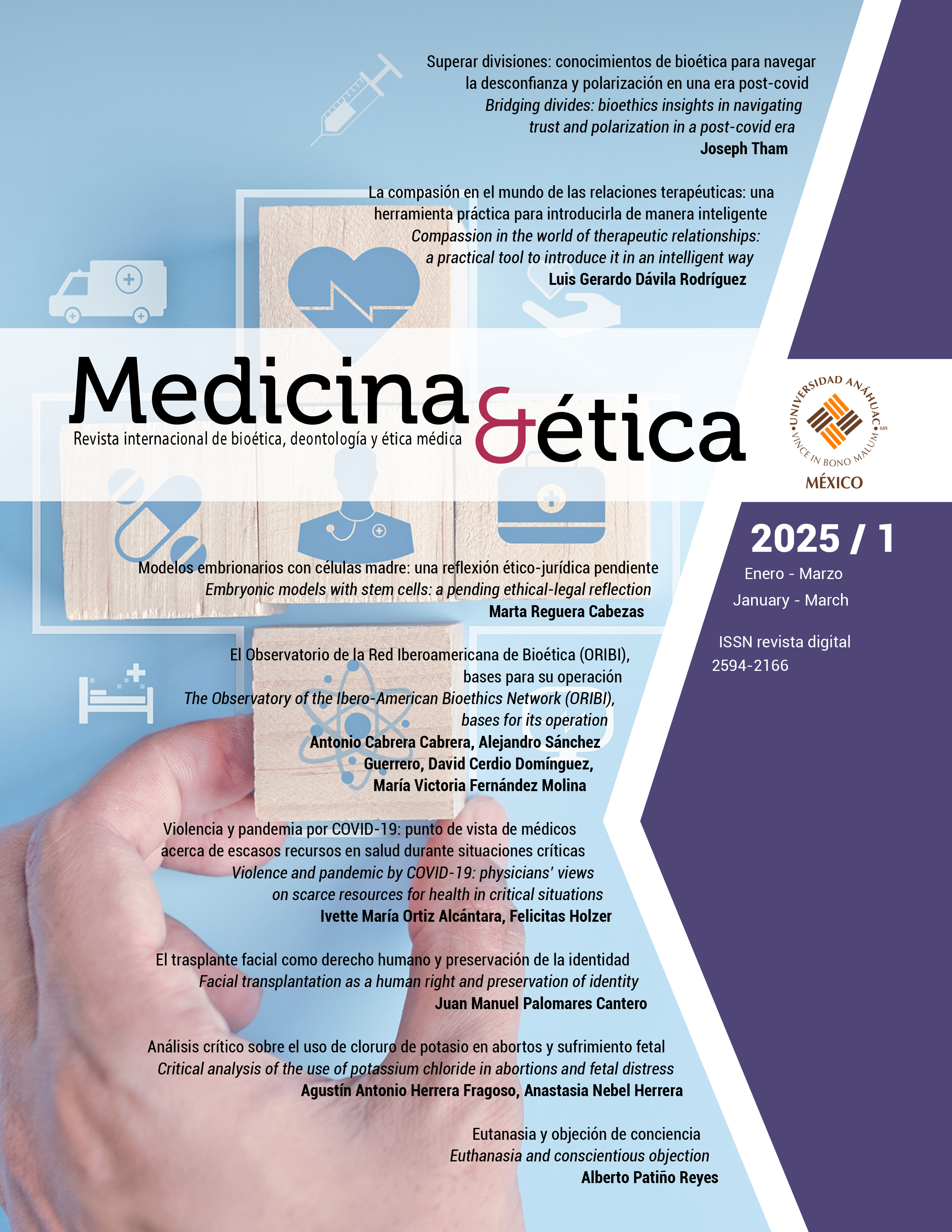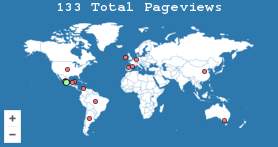La compasión en el mundo de las relaciones terapéuticas: una herramienta práctica para introducirla de manera inteligente
DOI:
https://doi.org/10.36105/mye.2025v36n1.02Palabras clave:
filosofía del cuidado, sufrimiento, compasión inteligente, alianza terapéutica, conversación logradaResumen
El presente artículo se inscribe en el marco de la creación de una cultura del cuidado del otro, signo de civilización y humanización, cuyo objetivo es reflexionar sobre el papel de la compasión en la mejora de los vínculos terapéuticos. Se constata que el mundo de la medicina es rebasado frecuentemente por los avances de la técnica y la ciencia, quedando de lado la parte compasiva y humanista. Por lo anterior, es necesario volver a fundamentar la compasión en los vínculos terapéuticos e insertarla en la dinámica del cuidado médico y terapéutico. Se propone a su vez una comprensión más completa de la persona y de los diferentes grados de vida que la integran. Finalmente, se busca introducir la compasión de manera concreta, a través de la “conversación lograda” es decir de una escucha y diálogo inteligente y compasivo.
Descargas
Referencias
Schkolnik F. ¿Neutralidad o abstinencia? Revista uruguaya de psicoanálisis. 1999. Disponible en: https://www.apuruguay.org/apurevista/1990/1688724719998905.pdf
Gadamer HG, Nélida M. El estado oculto de la salud. Barcelona, España: Gedisa. 2017.
Housset E. The paradoxes of pity. Care, compassion and recognition: an ethical discussion. 2011.
Rubio L. Orígenes y desarrollo de la idea de compasión en la Grecia clásica. Ibero [Tesis de maestría]. 2004. Disponible en: http://ri.ibero.mx/handle/ibero/910
Natucci J. La idea de la compasión en Schopenhauer y Scheler. Quién. 2021; 13: 95-114. Disponible en: https://revistaquien.org/index.php/aep/article/view/80
Schopenhauer A. El mundo como voluntad y representación. Madrid: Alianza Editorial. 2010.
E. García-Sánchez. Despertar la compasión: el cuidado ético de los enfermos graves. Pamplona, España: EUNSA. 2017.
Rouvillois S, Schattner M. Accompagner: sentiers pour une sagesse. París: Salvator. 2013.
Carlos Gómez Sánchez. Excesos de la compasión. Comentario al libro de Aurelio Arteta: La compasión. Apología de una virtud bajo sospecha. Revista debate, Uned, Madrid.
Mèlich J. Ética de la compasión. Barcelona, España: Herder Editorial. 2010.
Papa Francisco. La alegría del evangelio (Evangelii Gaudium): exhortación apostólica del santo padre Francisco, a los obispos, a los presbíteros y diáconos, a las personas consagradas, y a los fieles laicos sobre el anuncio del evangelio en el mundo actual. México: Ediciones Paulinas. 2013.
Ricci R. Educación médica: la conversación es en sí misma terapéutica. Uncuyo. 2023.
Gadamer HG, Nélida M. El estado oculto de la Salud. Barcelona, España: Gedisa Editorial. 2017. Disponible en: https://bdigital.uncu.edu.ar/objetos_digitales/15431/educacin-mdica.rmu16n2-ricci.pdf
Vessey D, Blauwkamp C. Hans-Georg Gadamer “The Incapacity for Conversation” (1972). Cont Philos Rev. 2006; (39):351-359. https://doi.org/10.1007/s11007-006-9041-2
Bermejo JC. La escucha que sana. Madrid: Editorial San Pablo. 2002.
Entralgo PL. Antropología médica para clínicos. Barcelona: Salvat. 1984.

Descargas
Publicado
Número
Sección
Licencia
Derechos de autor 2025 Luis Gerardo Dávila Rodríguez

Esta obra está bajo una licencia internacional Creative Commons Atribución-NoComercial-CompartirIgual 4.0.
Medicina y Ética se distribuye bajo Licencia Creative Commons Atribución-NoComercial-CompartirIgual 4.0 Internacional.
El autor conserva los derechos patrimoniales sin restricciones y garantiza a la revista el derecho de ser la primera publicación del trabajo. El autor es libre de depositar la versión publicada en cualquier otro medio, como un repositorio institucional o en su propio sitio web.

































